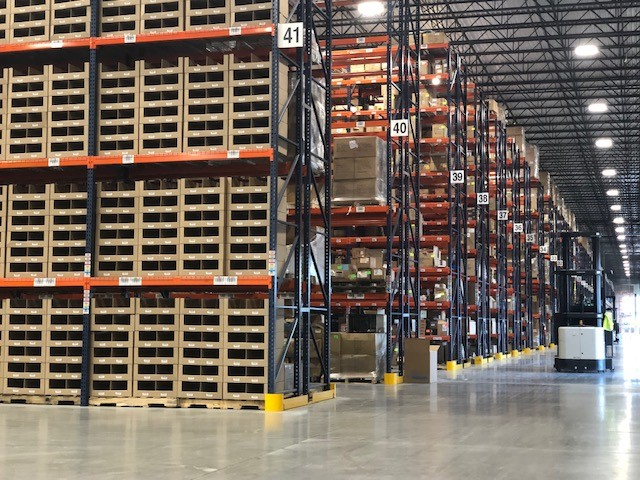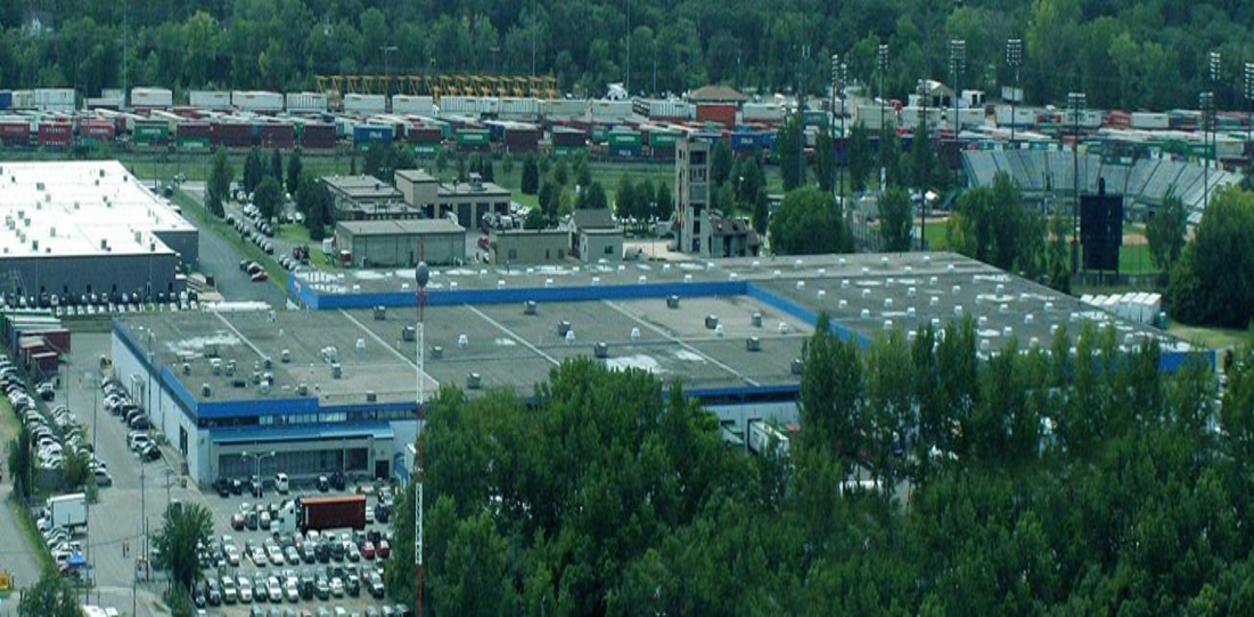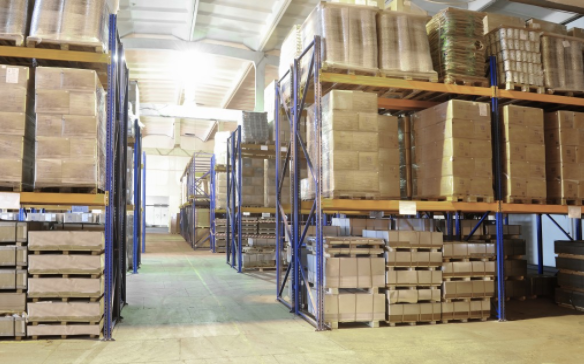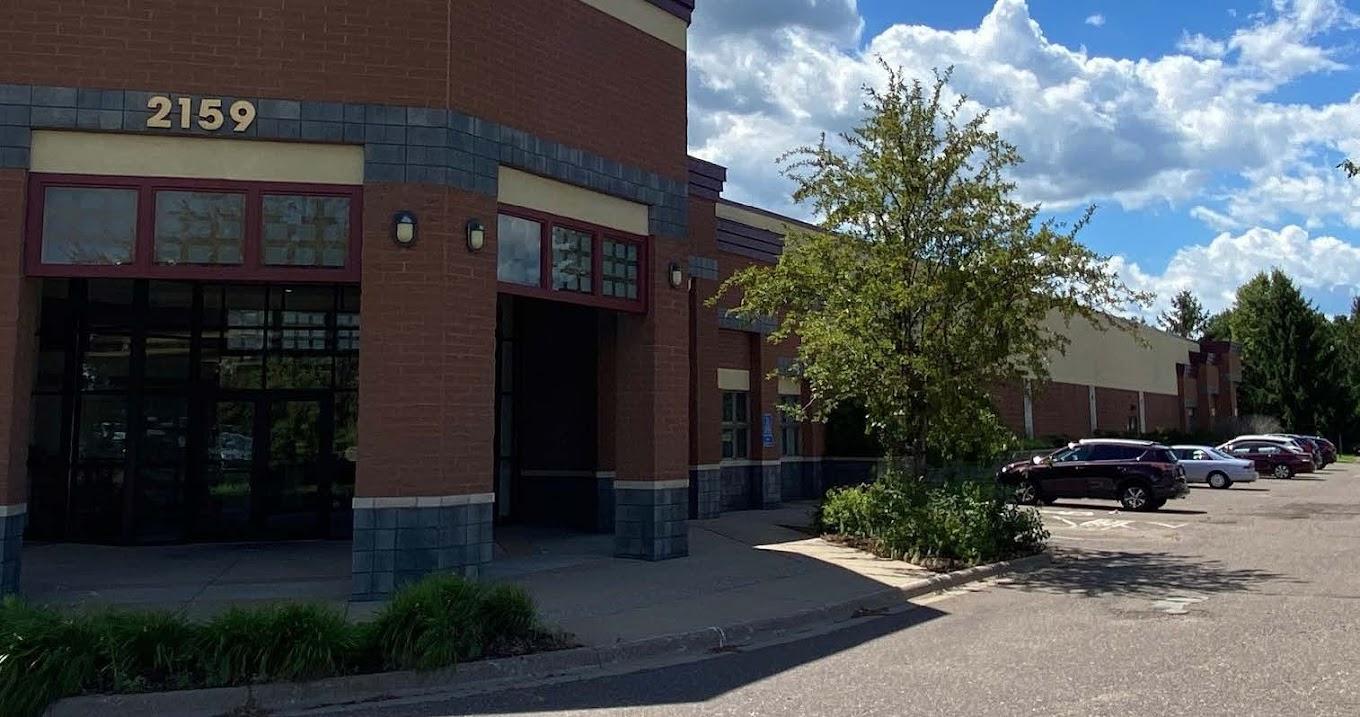Table of Contents
We’ll Match You with Minneapolis 3PL Companies
-
Location :
Brooklyn Park, MN
-
Services Offered :
Warehousing, Fulfillment, Warehouse Space, Shipping, Packaging, Printing
-
Year Established :
2012
-
Deals Closed :
3
-
Number of Reviews :
5
The company stands out for its exceptional order fulfillment services, covering eCommerce, B2B, subscription boxes, and large rollouts. With cutting-edge technology and a dedicated team, they ensure accurate and speedy... Read More About Reliable Fulfillment Solutions with Same-Day Shipping Across the U.S.
delivery, including same-day shipping across the U.S. Their meticulous order processing, real-time tracking, and easy inventory management make them a trusted partner for businesses seeking quality and efficiency in fulfillment solutions.
Emphasizing a customer-first philosophy, they support direct integration with eCommerce platforms, streamlining the order process and providing real-time access to inventory and order status. Their commitment to order quality, boasting a 99.97% accuracy rate, ensures an excellent delivery experience. With great online reviews, they are recognized as a top-notch fulfillment company focused on doing the right thing to support business growth.
-
Location :
Saint Paul, MN
-
Services Offered :
Warehousing
-
Deals Closed :
1
A leading player in warehousing and distribution, this company is known for its extensive services and commitment to customer satisfaction. With over 17 years of experience, their trained staff ensures... Read More About Warehousing Solutions from Saint Paul, MN with Advanced Technology and IT Support
accuracy and attention to detail in a time-sensitive environment. Their in-house IT department customizes warehouse management systems, offering detailed metrics for informed decision-making. They also use new technology in the CFS department, including real-time shipment tracking through an internal portal, enhancing transparency and efficiency for brokers and customers.
-
Location :
Winona, MN
-
Services Offered :
Warehousing, Fulfillment, Pick and Pack, 3PL Services
-
Year Established :
1998
-
Deals Closed :
2
-
Number of Reviews :
7
The company acts as a strategic marketing partner, offering tailor-made solutions to companies aiming to boost sales and enhance customer satisfaction. Through collaborative efforts, they craft and implement ideas that... Read More About Custom Marketing Solutions and Fulfillment Experts Headquartered in Minnesota
align with clients' business objectives and customer base.
By leveraging a range of resources such as variable data and print, direct mail, one-to-one marketing, and fulfillment services, they create bespoke solutions that address clients' specific needs and customer preferences. With all services housed under one roof, they ensure streamlined processes, shorter project turnaround times, and increased efficiency, ultimately contributing to the success of clients' projects and enhancing customer experiences.
-
Location :
Stillwater, MN
-
Services Offered :
Warehousing, Fulfillment, Pick and Pack, 3PL Services
-
Number of Reviews :
2
Founded in 2000, this company operates on a unique philosophy: every business and project is distinct, rejecting cookie-cutter solutions. They bring rare expertise and decades of experience to every project,... Read More About Stillwater, MN-Based Provider with Unique Solutions and Decades of Expertise
emphasizing cooperation, innovative thinking, and a results-oriented attitude. This approach has earned them the trust of leading manufacturers worldwide.
Whether it's e-commerce, fulfillment, CRM, or call center solutions, they provide unique solutions that give businesses an uncommon advantage in the marketplace.
Minneapolis offers several prime locations for renting warehouse space, each with distinct advantages for different business needs:
- Bloomington: Conveniently located near Minneapolis-St. Paul International Airport and major highways like I-494 and I-35W, Bloomington is well-suited for businesses that rely on air freight and regional distribution. Its strong transportation links and range of warehousing options, from smaller spaces to large-scale distribution centers, make it versatile for various industries.
- Brooklyn Park: Positioned along I-94 and I-694, Brooklyn Park provides access to regional and national distribution networks. It features larger industrial parks and logistics centers, making it a suitable location for high-volume operations requiring substantial storage capacity and efficient logistics.
- Northeast Minneapolis: Known for its industrial zones and proximity to downtown, Northeast offers easy access to major routes like I-94 and I-35W. The area is ideal for manufacturing and distribution operations, with ample warehouse space and solid infrastructure, making it a practical choice for businesses needing efficient transportation and access to key regional hubs.
Each of these areas offers practical benefits for businesses in need of warehousing in Minneapolis, with varying strengths in transportation access, infrastructure, and available space.
Warehouse Management Options in Minneapolis, MN
How to Find 3PL Fulfillment and Warehousing Services in Minneapolis
To find a 3PL fulfillment and warehousing solution in Minneapolis, MN, begin by researching providers through online listings and customer reviews. Focus on providers with a strong reputation for inventory management and order tracking. Comparing feedback from other businesses and assessing the provider’s ability to scale and meet your needs can help narrow your options. Additionally, you may want to consult brokers, but ensure their recommendations align with your business requirements.
At WarehousingAndFulfillment.com, we simplify this process by connecting you directly with reliable, thoroughly reviewed providers. Fill out a short form or give us a call, and we’ll match you with the best solution for your business.
What to Look for in Minneapolis 3PL and Warehouse Providers
When selecting a 3PL warehousing provider in Minneapolis, MN, businesses should focus on a few key factors.
- Lease Terms: Warehouse or co-warehouse lease terms are critical—whether you need short-term, flexible arrangements or longer commitments, it’s important to review your options based on your operational needs. Minneapolis
- also has a wealth of 3PL warehouses for pay-per-use services and monthly or yearly contract terms.
- Costs: Additionally, be mindful of costs beyond rent, including utilities, maintenance, and potential surcharges, to avoid unexpected expenses and negotiate more effectively. For outsourced fulfillment services, consider the costs of receiving, warehouse storage, pick and pack, and shipping.
- Location: Consider location carefully. Minneapolis offers excellent access to major highways like I-35 and I-94, along with proximity to the Minneapolis-St. Paul International Airport and rail lines, which can reduce shipping times and costs.
- Security: Security features are also important, especially if your goods require extra protection. Look for warehouses with solid security measures, including surveillance and controlled access.
- Technology: The integration of technology is another critical element. Choose a provider that supports modern inventory management tools, automated systems, and data access compatible with your business operations.
- Compliance: Finally, ensure the warehouse meets necessary compliance standards for your industry, such as FDA regulations or climate control for perishable goods.
By evaluating these factors—lease terms, costs, location, security, technology, and compliance—you can make a more informed decision when selecting a 3PL warehousing solution in Minneapolis.
We’ll Help You Find the Right Warehousing Solution
To connect with trusted warehouse services in Minneapolis, MN, businesses should look beyond search rankings, which may often reflect paid placements rather than quality. Our network, built on genuine reviews and feedback since 2005, offers a reliable way to find warehousing providers that meet your specific needs. For personalized matches based on real insights, simply fill out a quick form or give us a call.
Advantages of Warehousing in Minneapolis, MN
Warehousing in Minneapolis, MN, offers clear advantages for businesses seeking efficient logistics and market access.
- Proximity to Major Markets: Minneapolis’ central location in the Upper Midwest provides strategic access to major markets in both the U.S. and Canada. With direct connections to major highways such as I-35, I-94, and I-90, the city supports efficient regional and national distribution. Additionally, the presence of the Minneapolis–Saint Paul International Airport and key rail networks enhances freight movement, making it a vital hub for businesses looking to reach Midwestern and cross-border markets.
- Diverse Warehousing Options: Minneapolis offers a variety of warehousing solutions, including large distribution centers, cross-dock facilities, temperature-controlled storage, and smaller co-warehousing spaces. These options accommodate different business needs, from bulk distribution to the specialized handling of temperature-sensitive goods like food and pharmaceuticals. The area’s warehousing infrastructure allows businesses to scale capacity efficiently based on demand.
- Favorable Tax Environment: While Minnesota has a relatively high overall tax burden, there are specific incentives that can benefit businesses operating in Minneapolis. These include tax credits for investments in infrastructure, workforce development programs, and certain manufacturing-related activities. The state also offers sales tax exemptions for machinery, equipment, and warehouse-related improvements, helping to lower the overall cost of operations.
- Growing E-commerce and Logistics Infrastructure: Minneapolis has developed a strong e-commerce infrastructure, supported by advanced 3PL providers that offer real-time inventory management, fast order processing, and integrated fulfillment services. The city’s central location allows for rapid shipping across the Midwest, enabling next-day or two-day delivery to key markets. The area’s established logistics network, combined with investments in technology, makes it a favorable choice for e-commerce businesses.
- Industry-Specific Benefits: Minneapolis is known for its strong presence in industries such as retail, food processing, medical technology, and manufacturing. The city’s skilled labor pool in warehousing, transportation, and logistics supports consistent service levels and operational efficiency. Additionally, local regulations are supportive of industries that require specialized handling, such as cold chain logistics for the food and pharmaceutical sectors.
In summary, Minneapolis offers strategic advantages for warehousing, including central market access, diverse facility options, tax incentives, a growing e-commerce network, and industry-specific benefits. These factors make it an effective choice for businesses seeking efficient distribution across the Midwest and beyond.
Disadvantages of Warehousing in Minneapolis, MN
Warehousing in Minneapolis, MN, presents several challenges for businesses.
- Higher Costs in Central Locations: While Minneapolis has more affordable industrial real estate than coastal hubs, costs can still be high, particularly for facilities in or near the city center. Leasing rates tend to rise for modern warehouses with advanced features like cold storage, proximity to key highways, or specialized equipment. Additionally, labor costs in the Twin Cities area can be higher than in smaller regional markets, adding to overall operational expenses.
- Weather and Cold Climate Risks: Minneapolis’ harsh winter weather can affect warehousing operations. Heavy snowfall, icy conditions, and subzero temperatures can disrupt transportation, delay shipments, and affect facility maintenance. These conditions may also require businesses to invest in additional safety measures and more robust heating systems, increasing energy costs. Cold-sensitive products require advanced climate control measures to prevent freezing or damage during extreme cold spells.
- Traffic Congestion and Delivery Delays: While not as severe as in larger metropolitan areas, traffic congestion in Minneapolis, particularly during peak hours on major routes like I-35 and I-94, can still lead to delays in deliveries and extended transit times. Road conditions can worsen during winter storms, creating additional challenges for timely distribution.
- Climate Control and Heating Costs: Due to the region’s long, cold winters and hot, humid summers, warehouses in Minneapolis often require both heating and cooling systems to maintain appropriate storage conditions. Climate-sensitive goods, such as food products or pharmaceuticals, may need year-round temperature regulation, which raises operational costs for heating, cooling, and humidity control.
- Limited Access to Coastal Markets: Minneapolis is centrally located, which aids in regional distribution across the Midwest. However, it lacks direct access to coastal ports, making international shipments more complex and time-consuming. Goods imported through coastal ports must be transported inland, adding to shipping times and logistics costs. This can be a disadvantage for businesses focusing on rapid international or coastal market distribution.
In summary, warehousing in Minneapolis, MN, presents challenges like higher central costs, harsh winter weather, potential delivery delays, increased climate control needs, and inland logistical constraints. Businesses should carefully consider these factors when evaluating 3PL options in the area.
Average Warehouse Storage & Fulfillment Costs in Minnesota
Minnesota is an expensive option from a fulfillment pricing perspective and tends to run slightly higher than the national average. Below are some of the fees and prices in Minnesota, as compared to the U.S. national average.
Fulfillment Company Data in Minnesota
If you’re planning on bringing your business to Minnesota, there are many factors to consider. To help with your decision, we’ve provided some key data so that you can better know if Minnesota is a good fit to locate your third-party warehousing and fulfillment services.
It’s also important to look at the top businesses in the state of Minnesota. Doing so can help you understand what industries thrive in the state, what competition might you encounter, or whether your business could cater to an untapped niche. Here are the top 10 businesses in the state of Minnesota:
Connect with Trusted Warehouse Services in Minneapolis, MN
Don’t rely on search rankings alone—many top listings are paid placements, not the best options. Our curated network, built on unbiased reviews since 2005, connects you with reliable warehouse services in Minneapolis, MN. Fill out our form or call us to get your tailored matches today.
Last Step
Since 2005 We’ve Been Helping Companies Just Like Yours
Your contact information is held in the strictest of confidence. We will contact you before we connect you with vendors so that we can learn about your situation, obtain any of your contact preferences, and answer any of your questions.
YOU have control over your contact details:
- No unwanted contacts – you control how vendors respond to you
- Remain confidential if you wish
- No commitment to choose any of our vendors
- Ask our Fulfillment experts any questions you have!



























